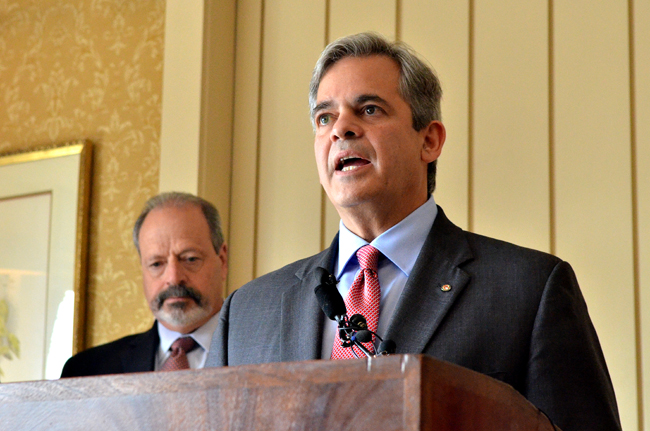In his roaring re-entry to the Senate after surgery in July, Sen. John McCain stated the obvious — “(congress is) getting nothing done.” With hyper-partisanship rendering federal and state governments unreliable sources of policy and progress, it’s time for Americans to recognize the potential that cities hold in the policymaking process — and finally do their part to end the apathy at local polling booths.
While the 115th Congress has been more successful in passing legislation than the previous three, continued political blunders — such as the inability for the majority Republican congress to repeal the Affordable Care Act, a centerpiece of the party platform — remind us of how inept the federal government can be at passing substantive legislation. It’s no surprise then that with a myriad of issues across the country demanding urgent action, other actors have begun to fill the shoes that federal and state governments have been unable to. Whether it is Seattle’s $15 minimum wage experiment, the over 350 mayors — including Austin’s Steve Adler — pledging to uphold the Paris Agreement that the Trump administration left, New Orleans’ charter school success story or the heavily debated sanctuary city movement, cities have become the new American laboratories of democracy.
This recent trend of city empowerment has largely been spurred by a dramatic increase in the economic clout of American cities and metropolitan areas. With 80 percent of Americans living in cities, and urban centers forming the core of the national economy, the goals of city leaders are now shifting from attracting newcomers to caring for current residents. Through a broad web of partnerships, cities are using their newfound relevance to enact serious policy agendas. City projects are spending more money, implementing broad policy initiatives and claiming a more tangible impact on the lives of constituents than either state or federal governments. Even with this ascension to relevance, however, Americans remain willfully aloof to city politics.
While cities currently face resistance to their forays into new policy arenas, the largest challenge to the success of burgeoning city politics comes from within. Local elections coinciding with presidential races see voter turnout rates consistent with national levels of around 60 percent, but special elections and city elections not coinciding with national races see turnout rates plummet. Austin’s last joint general and special election in May of this year saw a turnout rate of registered voters at an abysmal 6.26 percent. As city governments continually grow in relevance, scope and power, it becomes increasingly imperative that Americans take part in city elections.
If Americans continue to believe that the only elections worth voting in are presidential and midterm races, they leave the fate of city governance in the hands of a tiny sliver of the population. With cities more empowered than ever to venture into unknown realms of local policy, it is irresponsible to ignore them. If the federal and state government continue to fall short of enacting meaningful policy, cities will act. The question now is whether the American people will, too.
Spencer Buckner is a Plan II and government freshman from Austin.





















